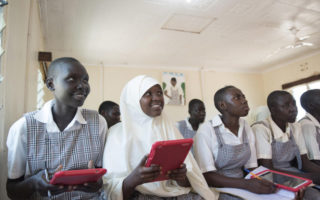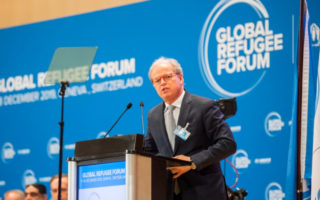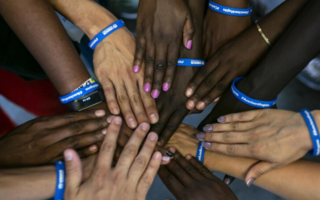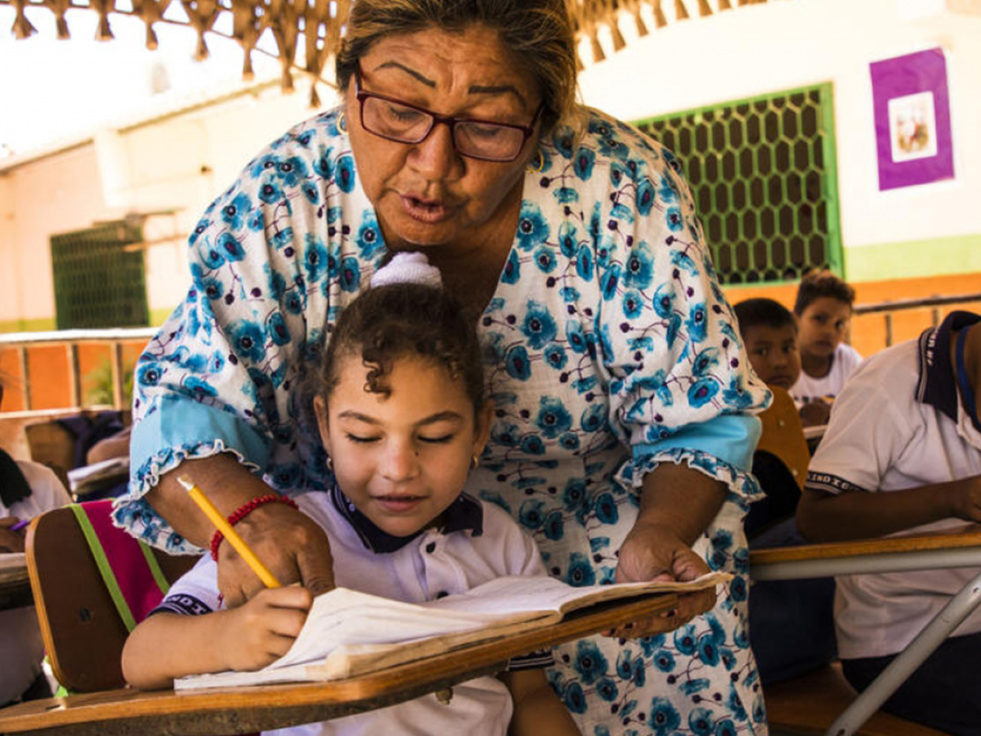
A teacher helps a student in a class of Colombian and Venezuela refugee children in Paraguachón, Colombia. © UNHCR/Vincent Tremeau
A month after the historic meeting wrapped up, these are the pledges and commitments that will boost opportunities for refugees and their hosts.
By UNHCR Staff
The first-ever Global Refugee Forum drew 3,000 participants from across the world to Geneva from 16-18 December. It aimed to reboot responses for the millions uprooted by wars and persecution and to support the communities that host them.
Now is a moment to look back at the wide-ranging and substantial commitments made at the Forum to improve the lives of 25.9 million refugees, together with their hosts, most of whom are in developing nations.
Some 840 pledges have been made, and they continue to come in a month after the event wrapped up at the Palais des Nations. Participants also shared more than 400 examples of good practices that show how the Global Compact on Refugees is already making a difference in the lives of refugee and host communities
Participants made 100 pledges in support of inclusive national policies. States and others pledged, for example, to support policies for refugees living outside camps, strengthened asylum systems, refugees’ access to work and financial services, and the inclusion of refugees in national and local development plans and national systems for education and health.
More than half of the world’s refugees are children. Above 140 pledges focused on expanding access to quality education for refugees and their hosts. Commitments ranged from early childhood, primary, and secondary education to tertiary, technical, and vocational education.
While away from their homes, refugees want to work. Over 100 pledges addressed jobs and livelihoods. These included commitments towards job creation, work in digital services, microfinance, and women’s economic empowerment. There were also pledges to support infrastructural services, including health, water, sanitation, and hygiene, connectivity, and shelter.
At a time of deepening concern at the climate crisis, over 40 States and other stakeholders committed to support green energy and conservation efforts in areas hosting large numbers of refugees. Thirty entities signed up to UNHCR’s Clean Energy Challenge to achieve access to affordable, reliable, sustainable, and modern energy for all refugee settlements and nearby host communities by 2030.
Some 160 pledges focused on achieving lasting solutions. A small number of host countries pledged to integrate specific groups of refugees. Several countries of origin pledged to create conditions for refugees to return in the longer term. They announced efforts to resolve conflicts, promote the rule of law and build peace. Many States and other participants also pledged to use their political and financial resources to address the root causes of displacement.
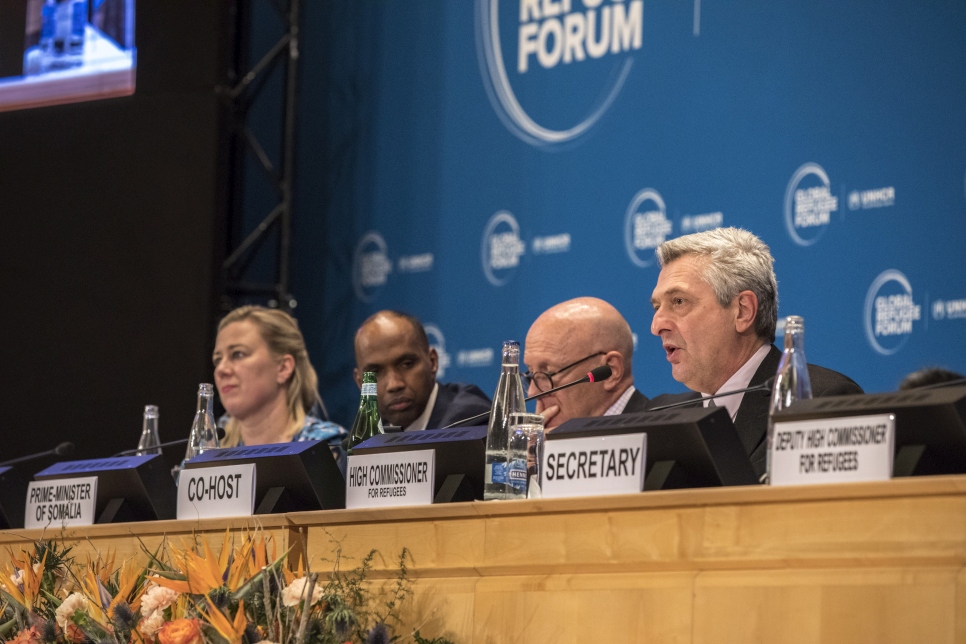
UN High Commissioner for Refugees Filippo Grandi makes closing remarks at the first Global Refugee Forum. © UNHCR/Andrew McConnell
In keeping with the Compact’s call for a Three-Year Strategy on Resettlement and Complementary Pathways, there were also more than 100 commitments to expand third-country solutions, such as resettlement, private or community sponsorship, labour mobility schemes, and scholarships for refugees.
Complementing the pledges of policy change, new programmes, and technical support, over 250 pledges contained a financial commitment. These commitments will support countries in both responding to refugee situations and implementing inclusive policies.
As this support is translated into action on the ground in the coming years, refugees will no longer be resigned to living in states of limbo and dependent on humanitarian aid. They will instead be able to live with dignity, rights, and a sense of purpose and hope.
The Forum drew four heads of state, the UN Secretary-General, business leaders and representatives of international relief and development organizations among others.
Seventy refugees themselves attended and their contribution energized and inspired the gathering.
Building further on its ground-breaking work over the last few years, the World Bank Group announced a new funding and financing window of US$2.2 billion for refugees and host communities. They also announced a window of US$2.5 billion to boost the private sector and create jobs in countries affected by fragility, conflict, and violence.
The Inter-American Development Bank similarly announced financing of US$1 billion. And the OECD INCAF adopted the Common Position on Financing for Refugee Situations, setting out principles for addressing humanitarian assistance, development, and peace interventions in refugee contexts.
Additional pledges of financial support from States and others came to over US$2.3 billion, including more than US$250 million from the private sector, underlining its growing role in mobilizing vital resources to support millions of refugees worldwide. Businesses committed to bringing not only financial resources, but also technology, new business models, expertise, and investments to refugee responses.
- See also: Live blog: Global Refugee Forum
There were announcements of 15,000 job opportunities for refugees, more than 125,000 hours of pro bono legal services per year, and support for education and training, women’s economic empowerment, connectivity, business development services, innovative financing, and Islamic philanthropy.
Many pledges also recognized the importance of protection for individuals with diverse specific needs. They included commitments to address sexual violence, empower women and girls, address disability, and include refugees in decisions that affect them.
The Forum was a key milestone in implementing the Global Compact on Refugees, a framework for more predictable and equitable responsibility-sharing affirmed by the UN General Assembly in late 2018. The international community made ground-breaking commitments at the forum. Now these commitments must be rapidly translated into concrete outcomes for the future.
You can find a full readout of the event here.
Originally published by UNHCR on 17 January 2020



